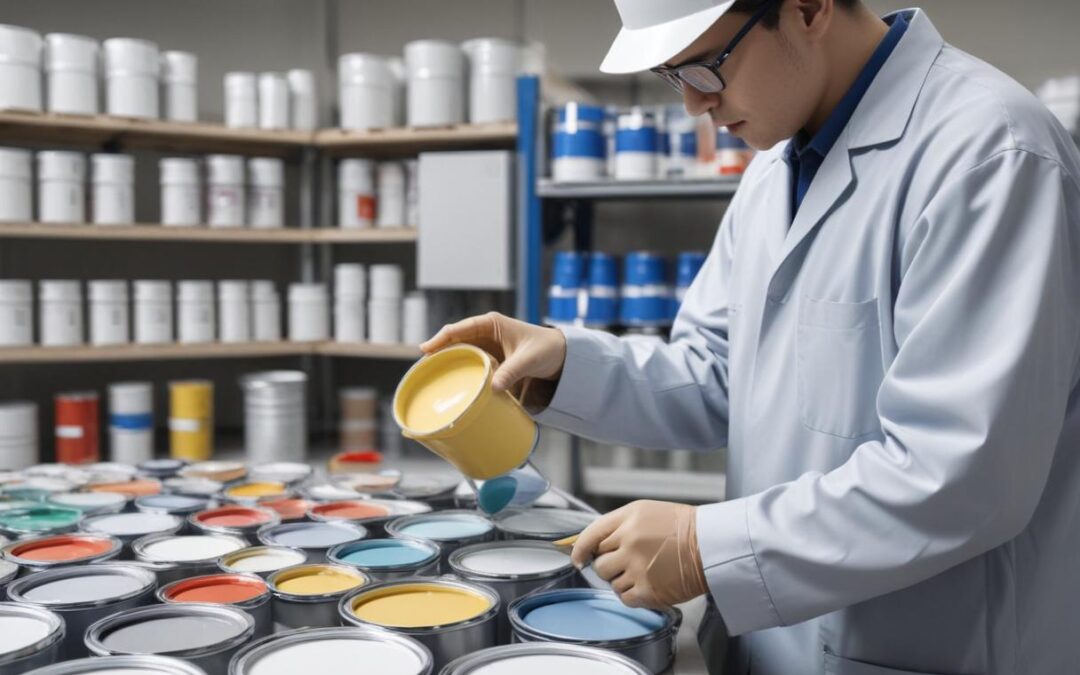The paint industry in Greece has managed to maintain its resilience despite the difficult economic conditions of the past fifteen years. The steady demand for construction, maintenance, and renovation, the shift towards exports, the emphasis on innovation and quality, as well as the flexibility of companies, are some of the factors that have contributed to this resilience. With the continued focus on eco-friendly and specialized products, the paint industry in Greece is expected to continue to grow and significantly contribute to the country’s economy. The available job positions in this industry are numerous and varied, covering a wide range of specialties and skills. Here are the main categories of job positions in the paint industry.
Chemical Engineers and Chemists
Chemical engineers and chemists are essential for developing new products and improving existing paints. Their duties include:
- Research and Development (R&D): Working in laboratories to develop new chemical compositions and solve technical problems.
- Quality Control: Ensuring that products meet quality and safety standards through testing and analysis.
- Regulatory Compliance: Monitoring regulatory developments and ensuring products comply with local and international specifications.
Production Engineers
Production engineers manage and optimize production processes to ensure the efficient operation of production lines. Their main responsibilities include:
- Process Optimization: Analyzing and improving production processes to increase efficiency and reduce waste.
- Equipment Maintenance: Overseeing the maintenance and repair of equipment to ensure uninterrupted operation of production lines.
- Personnel Management: Training and guiding production staff to ensure adherence to quality and safety standards.
Laboratory Technicians
Laboratory technicians play a crucial role in quality control of products. Their main duties include:
- Conducting Tests: Performing physical and chemical tests on raw materials and final products.
- Data Analysis: Interpreting test results and reporting them to engineers and production managers.
- Equipment Maintenance: Ensuring the proper functioning and maintenance of laboratory equipment.
Production Workers
Production workers operate machinery and equipment on the production lines, handling the preparation of paints. These professionals need to have a good understanding of production processes and workplace safety.
Sales Representatives and Sales Consultants
Sales representatives and consultants are responsible for promoting and selling paint products to customers. Their duties include:
- Client Relationship Management: Developing and maintaining relationships with clients, providing technical advice and support.
- Sales Strategy Development: Formulating strategies to increase sales and achieve company targets.
- Market Trend Monitoring: Analyzing market trends and adjusting sales strategies accordingly.
Administrative and Financial Personnel
Administrative and financial personnel manage the company’s operations and ensure its financial health. Their main responsibilities include:
- Inventory Management: Organizing and monitoring stocks of raw materials and finished products.
- Financial Management: Tracking financial data, preparing financial reports, and ensuring the company’s financial stability.
- Personnel Management: Overseeing administrative functions and managing human resources.
Conclusion
The paint industry offers a plethora of opportunities for professional development in various fields, from research and development to production and sales. With the ongoing demand for innovation and quality, these specialties remain crucial for the success and growth of the industry. These opportunities make the paint industry an attractive sector for those seeking a dynamic and growing career.

